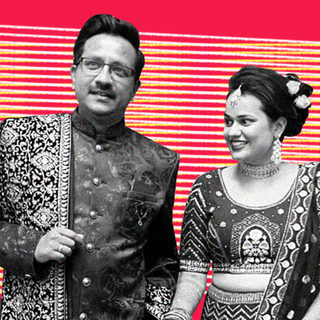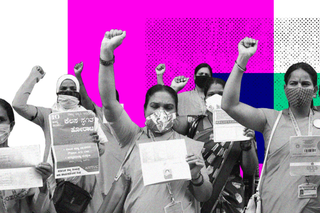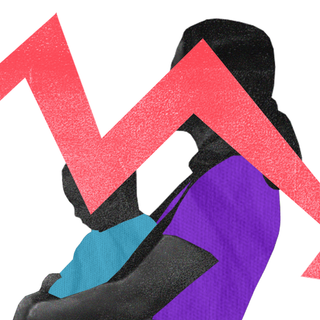
Anganwadi Workers and Helpers are Entitled to Basic Social Security: SC
The important judgment recognizes the care work done by women at the grassroots of the public health system.

The public health infrastructure rests on the shoulders of thousands of women who impart care laborwithout access to any social security net. This was the contention of a recent Supreme Court judgment, where the court, in recognizing the tremendous care work and service, said Anganwadi workers (AWWs) and helpers (AWHs) can claim gratuity — compensation that “employees” are entitled to. This lump sum money carries survival and cultural value; it not only adds to the monetary power for the women, but is also considered a critical form of social security that employers must pay to the employee in recognition of their service.
“Gratuity is a gesture to appreciate the efforts of a person towards the betterment, development, and prosperity of an establishment and that is the reason for which gratuity is considered to be social security, and with the passage of time, it has become a statutory obligation on the part of employers,” a bench of Justices Ajay Rastogi and A.K. Oka ruled. They were responding to a petition filed by anganwadi workers and representing organizations about the right to be paid gratuity under the Payment of Gratuity Act, 1972.
“The time has come to find out modalities in providing the voiceless better service conditions commensurate to the nature of job discharged by them,” wrote Justice Rastogi in his opinion.
India’s Anganwadi workers have waged a long fight with the system. It was in 1975 when the role of Anganwadi workers came to anchor the government’s child nutrition scheme. Several women in nearby villages agreed to undertake duties better suited to an arsenal of trained professionals; they kept detailed records, paid house visits, cooked meals, and fed children by the hand. Decades later, their labor remains overlooked and dismissed. More than 25 lakh in number, the women deliver nutrition and access to primary healthcareto millions of women and children in the public health system.
During the pandemic, Anganwadi workers, along with other community health workers, emerged to be ournational pride for how they provided life-saving services to those in need — and shame for the weight of that burden without any other support. They assiduously launched strikes to demand better pay, medical protection, regular Covid19 testing, and the status of government employees — all while responding to the needs of people separated from the health infrastructure.
Related on The Swaddle:
Anganwadi Workers Return 80,000 Faulty Smartphones Given for Data Collection
But the public health system has largely framed their service as “care work,” offering them a paltry honorarium instead of salaried wages — let alone social security benefits. It has to do with how care work is feminized and thus devalued — because it is seen as less rigorous work.
Women have proven to be the backbone of the Integrated Child Development Scheme (ICDS) — allowing “the survival, wellbeing, and rights of children become social issues of interest to the whole community,” as Prabha Kotiswaran, a professor of law and social justice, noted.
In the current judgment, the bench noted the Anganwadi workers’ and helpers’ work could be equated with the work done by a government employee. As an “extended arm of the state,” they were performing work recognized under provisions of Sections 4, 5, and 6 of the National Food Security Act, 2013. The said passage of the law aims to ensure nutritional support for pregnant women, lactating mothers, and children. Moreover, since they are also responsible for conducting preprimary education activities by providing school kits and setting timetables, their work also fulfills aspects of the Right to Education Act.
As such, Anganwadi workers and helpers are not doing “part-time” work — but a full-time service that must be framed as such. This empowering notion was echoed in the judgment as well: “AWWs and AWHs have been assigned all-pervasive duties… considering the nature of duties specified thereunder, it is full-time employment,” as Justice Oka observed.
Anganwadi workers, helpers, the Accredited Social Health Activists, among others, form the healthcare apparatus of millions of people. Despite being vital to this operation, the government and legal system have over the years refused to grantthem the status of government employees. The treatment of women care workers in India tells a poignant and pointed saga of how the system continues to undervalue women’s labor — and how the work is always divided along gender lines.
The entitlement to gratuity then goes beyond money. It is a legal nod to the services women offer to a system and populationdeeply reliant on them — and a plea for a fundamental change.
Saumya Kalia is an Associate Editor at The Swaddle. Her journalism and writing explore issues of social justice, digital sub-cultures, media ecosystem, literature, and memory as they cut across socio-cultural periods. You can reach her at @Saumya_Kalia.
Related


Women’s Income Drops After Childbirth, and the Pandemic May Worsen This Trend
